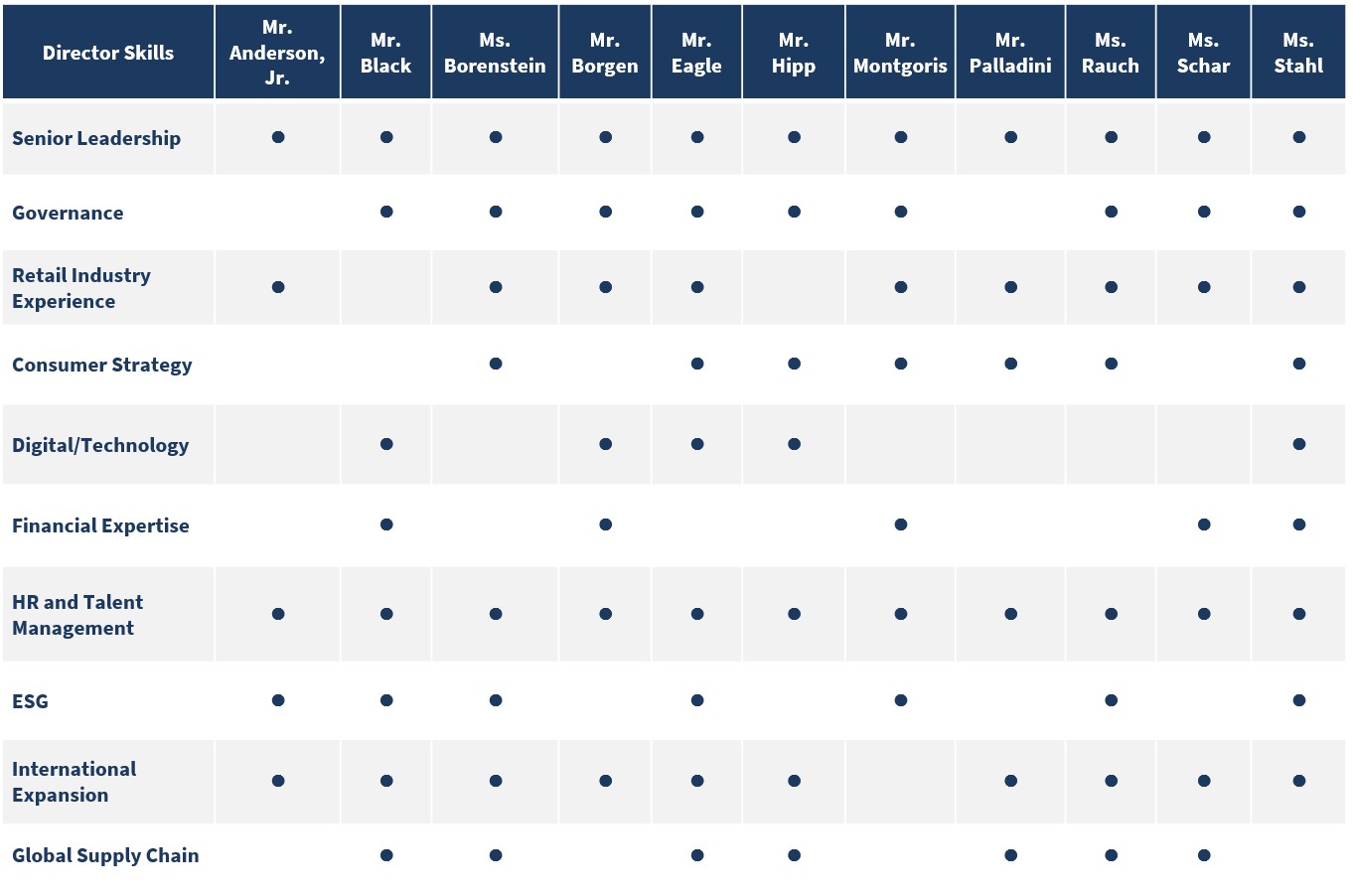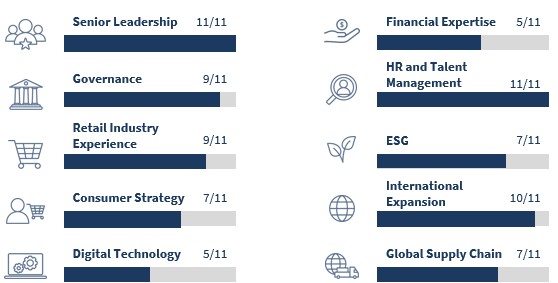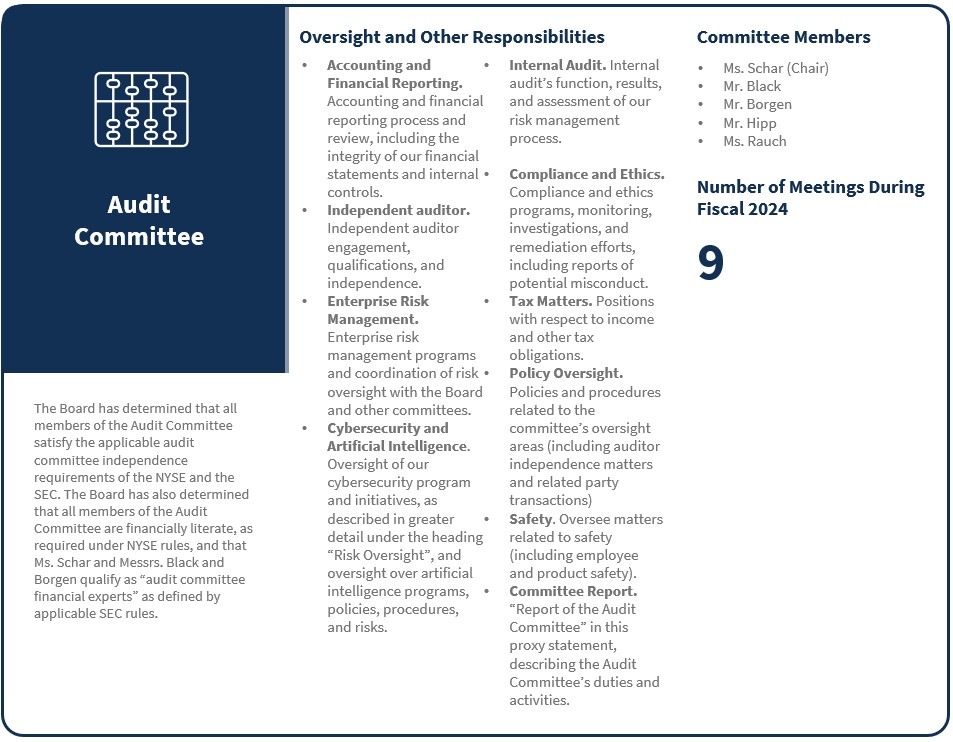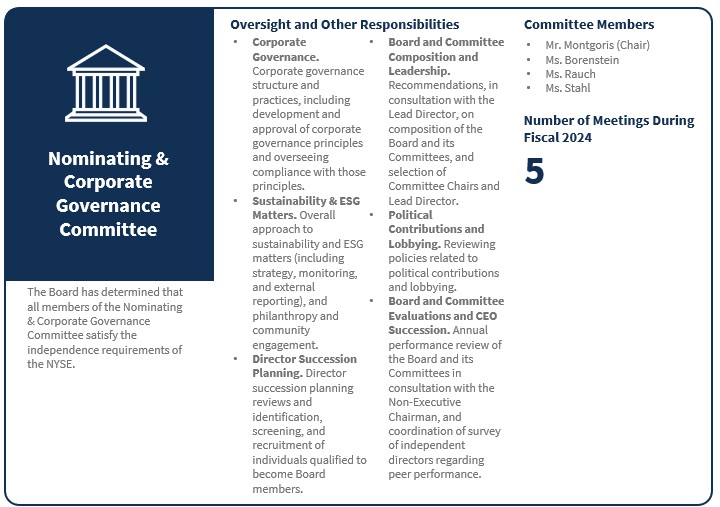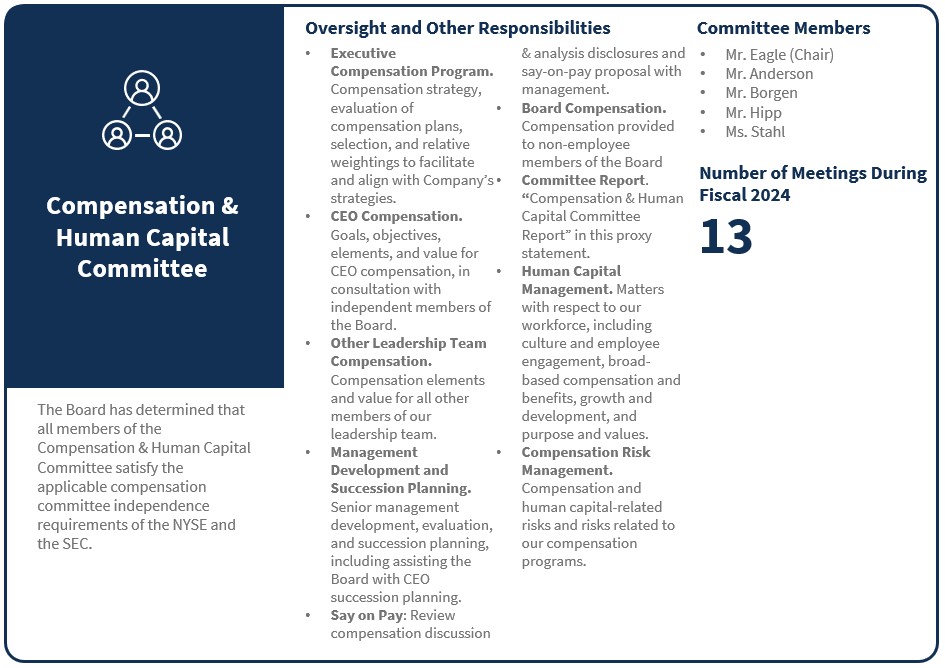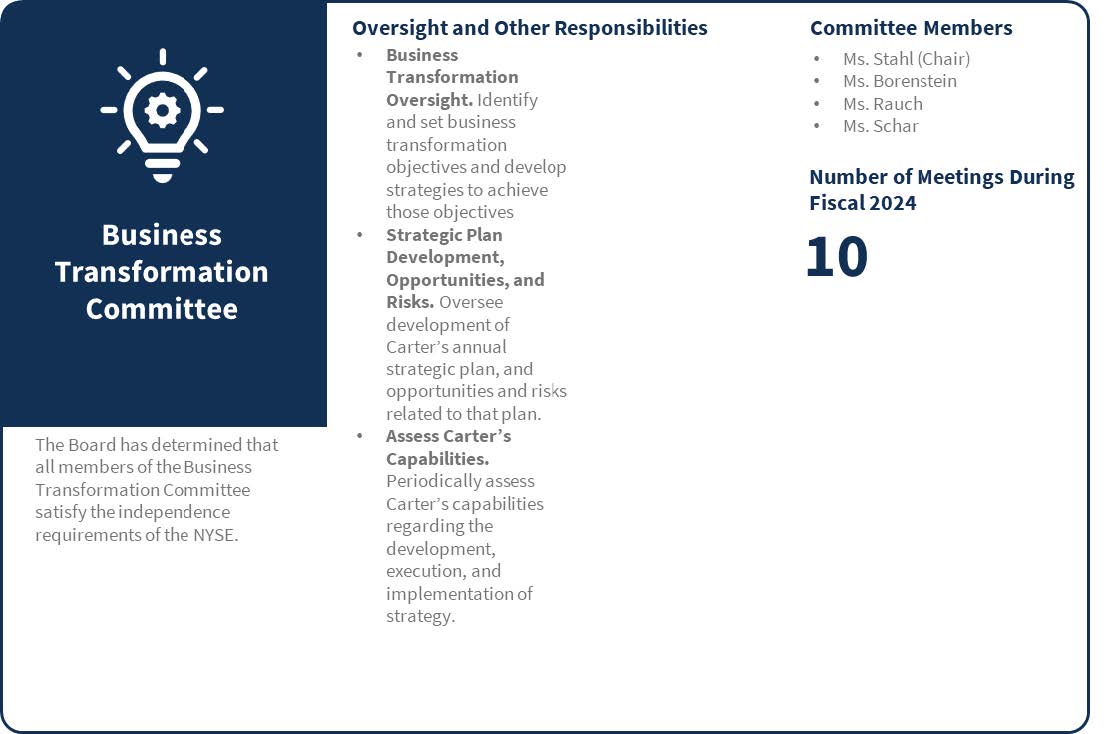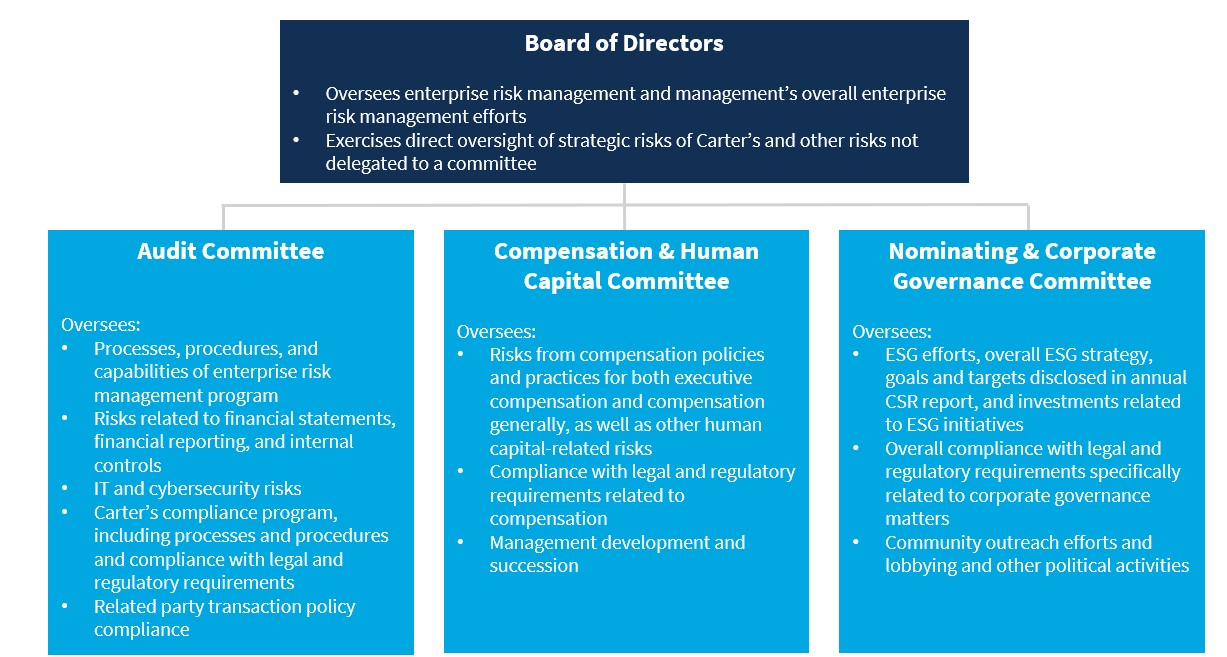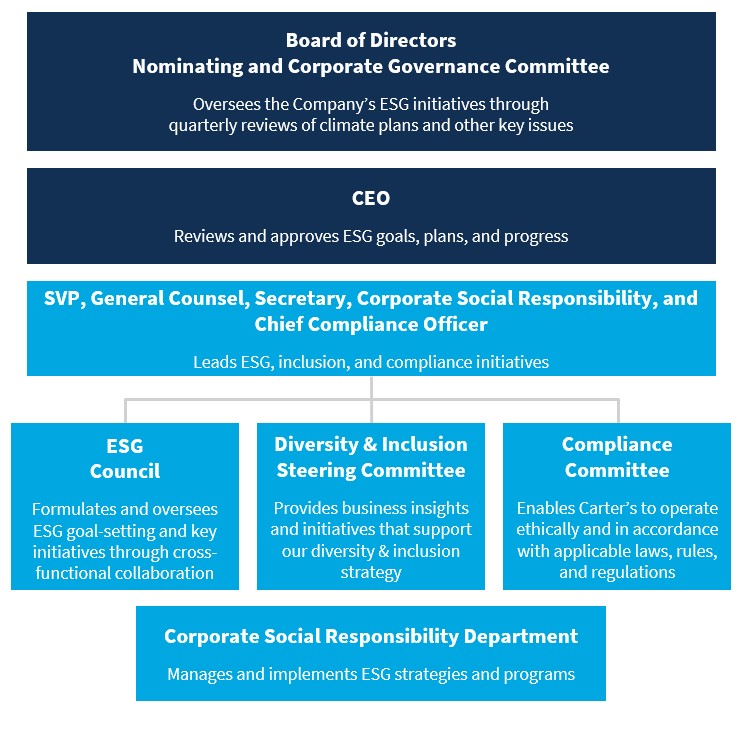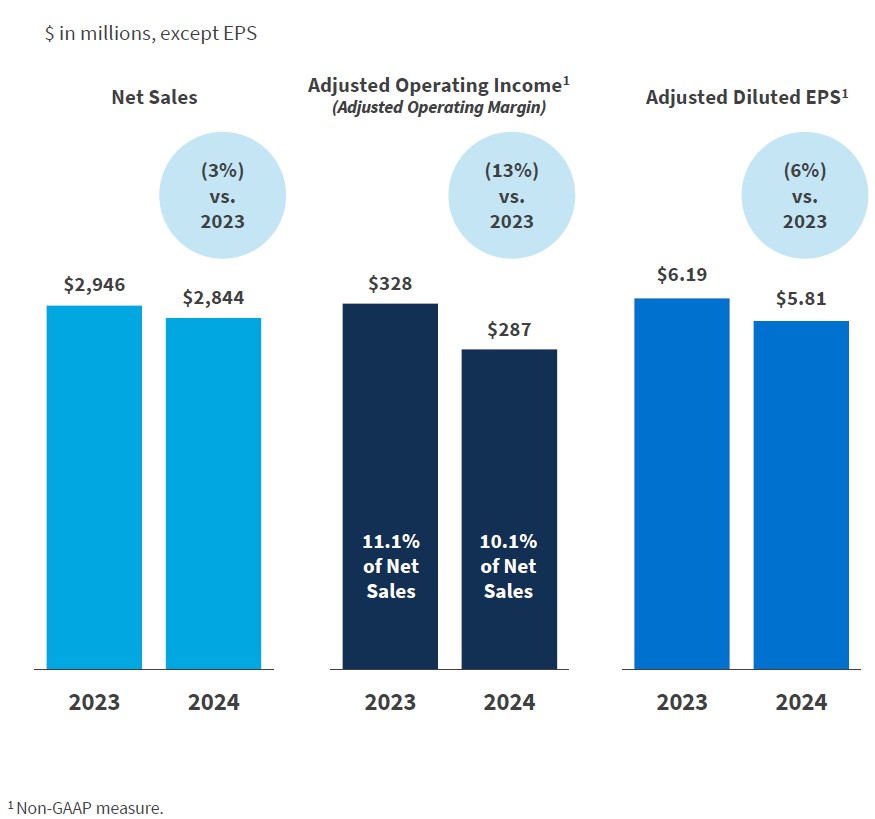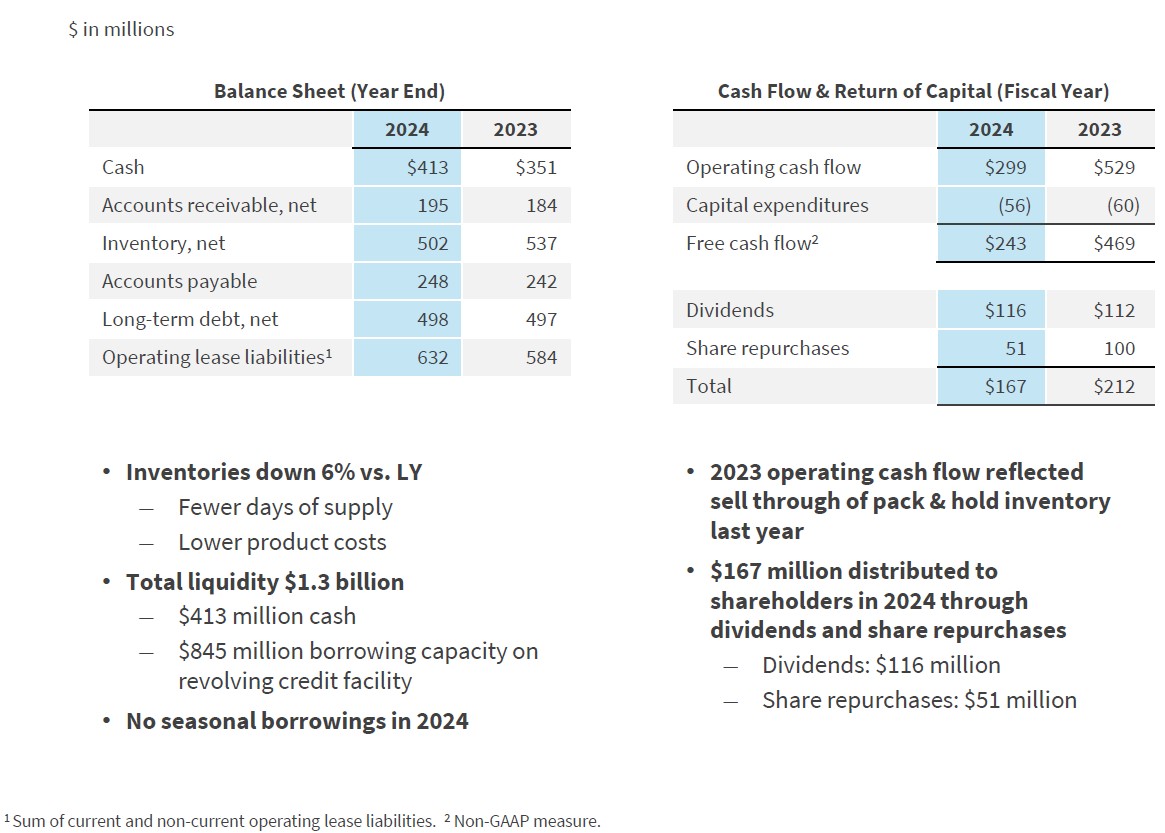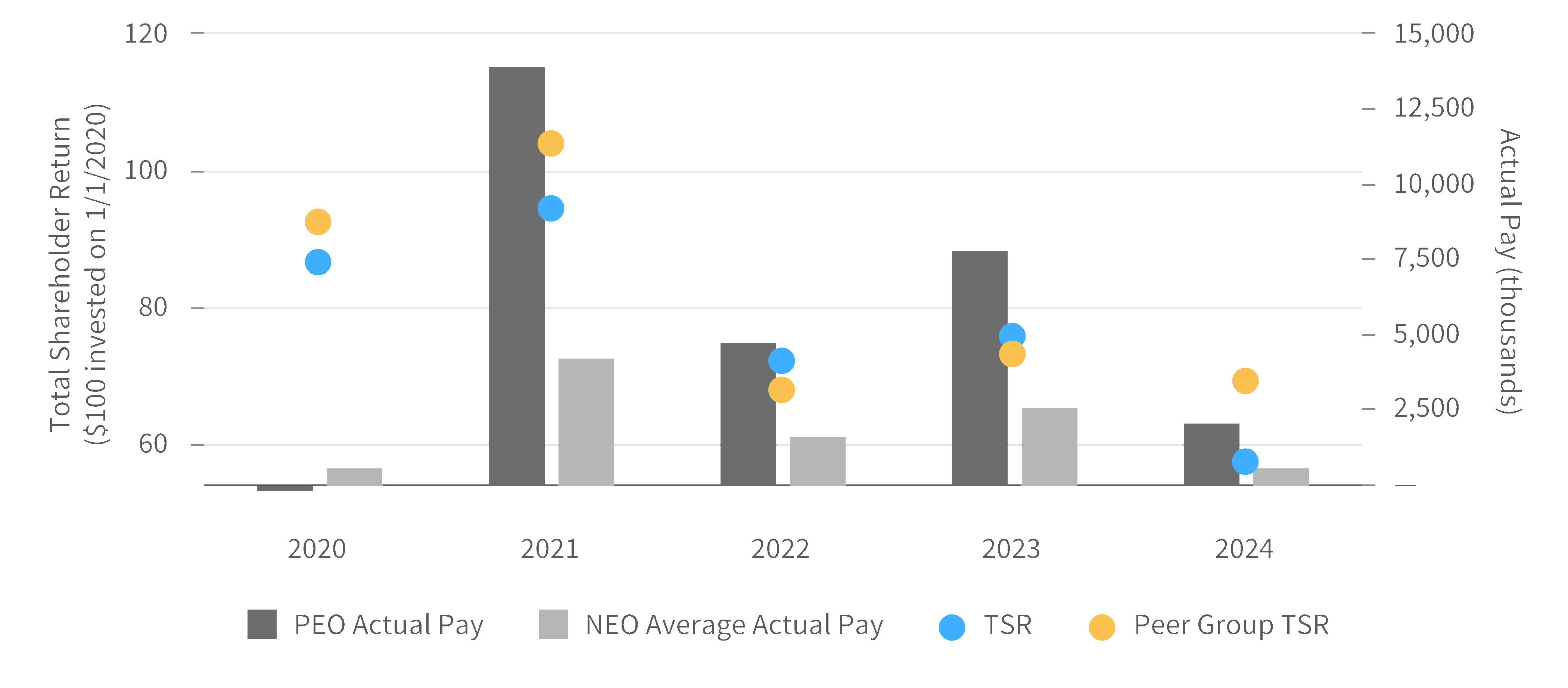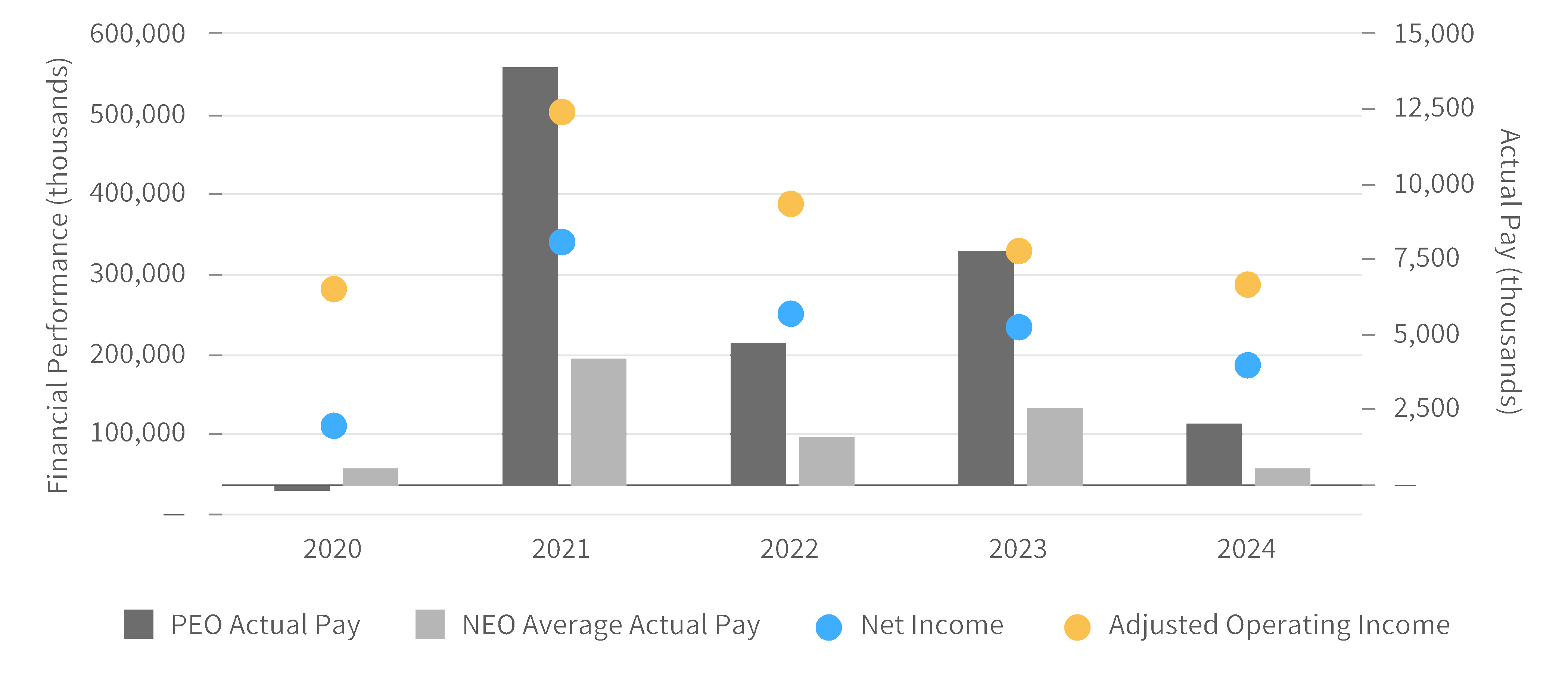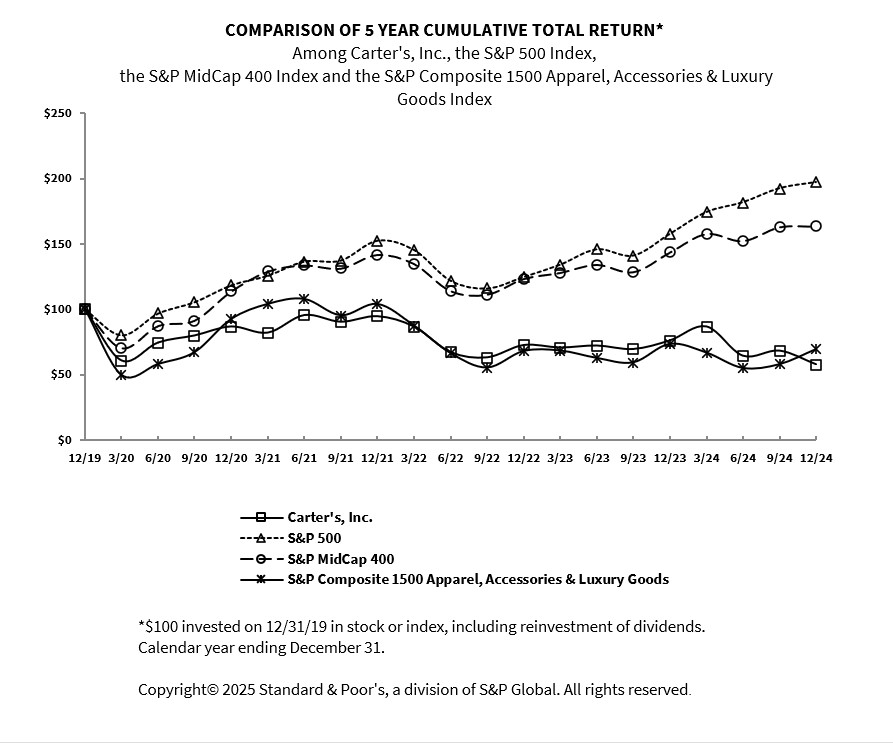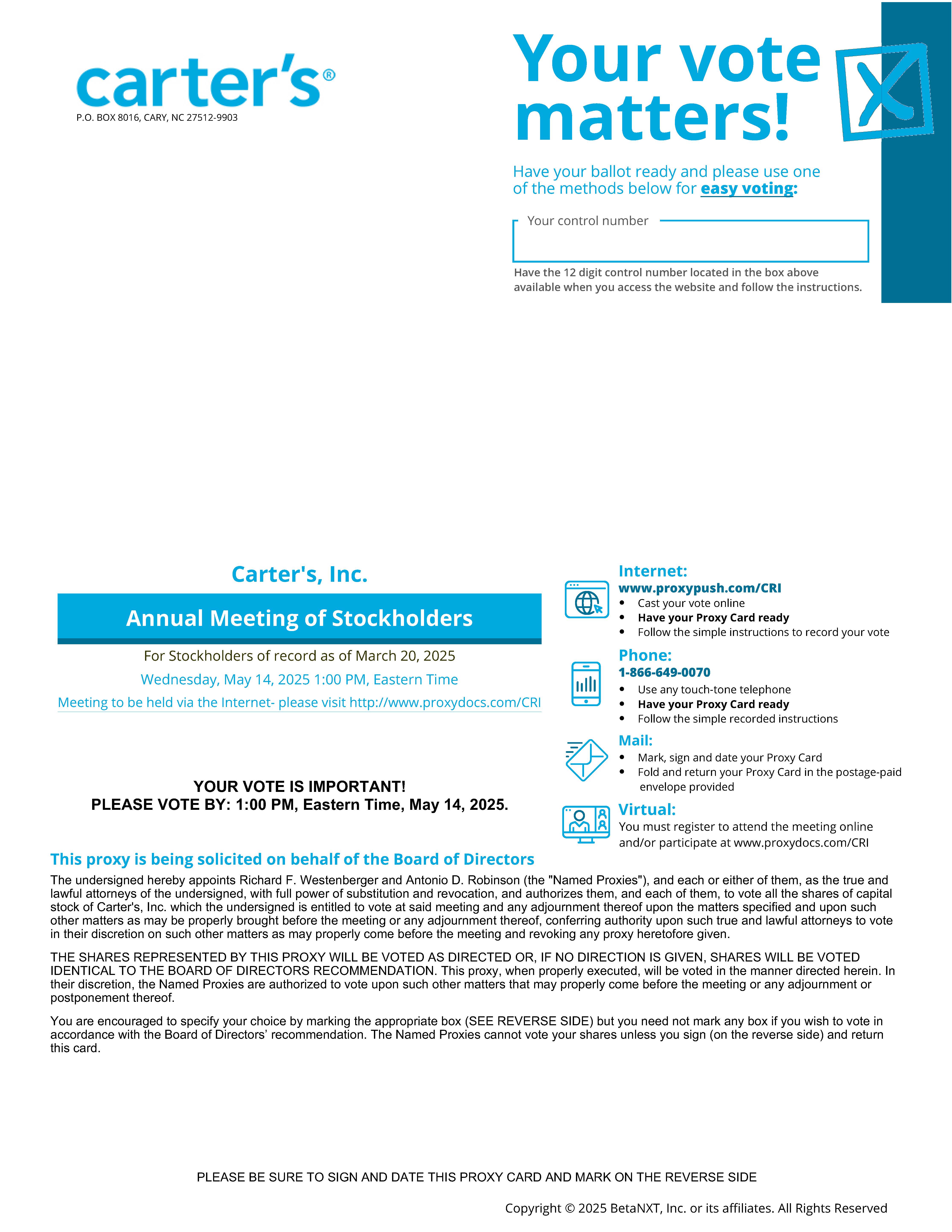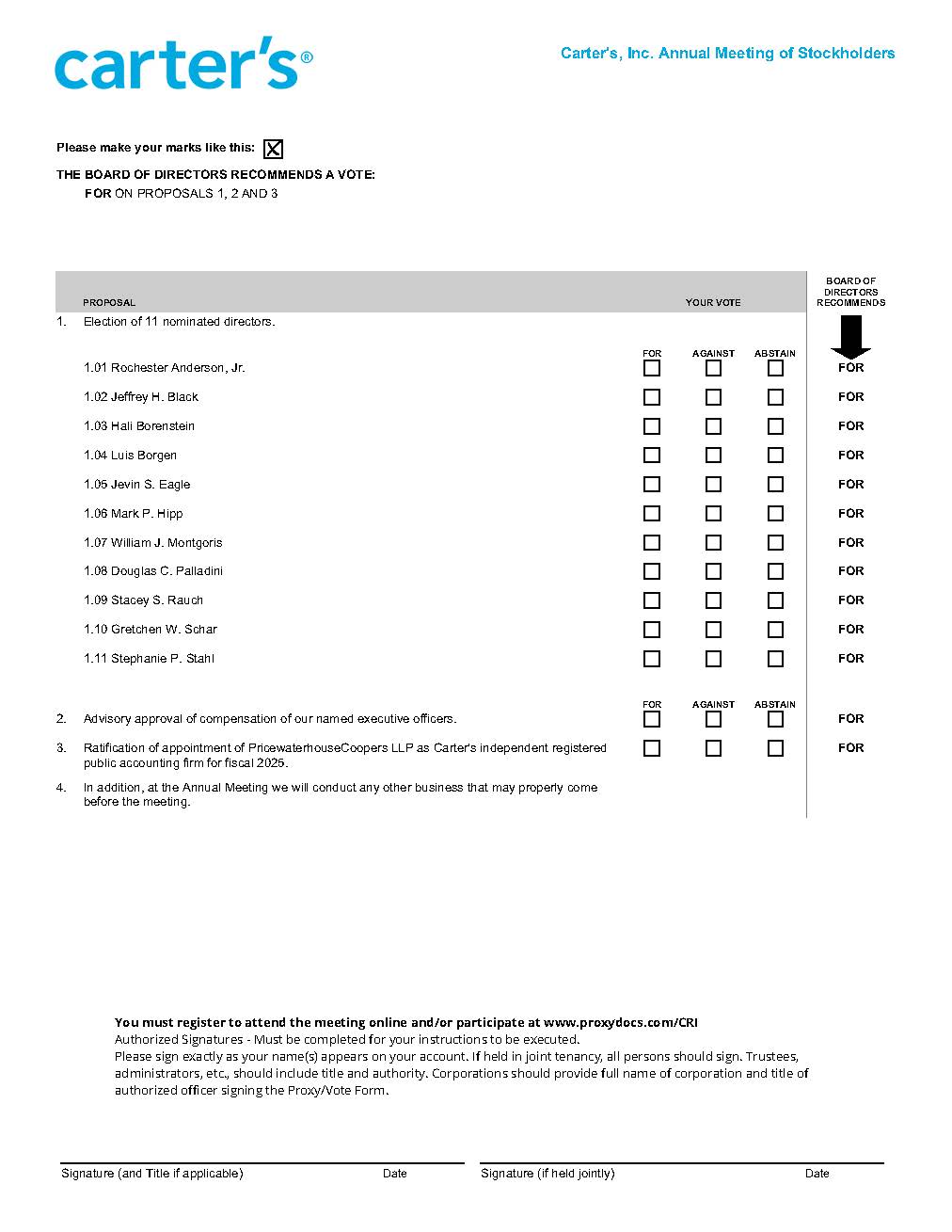FORWARD-LOOKING STATEMENTS
Statements contained in this proxy statement that are not historical fact and use predictive words such as
“estimates”, “outlook”, “guidance”, “expect”, “believe”, “intend”, “designed”, “target”, “plans”, “may”, “will”,
“are confident” and similar words are forward-looking statements (as such term is defined in the Private
Securities Litigation Reform Act of 1995). These forward-looking statements and related assumptions involve
risks and uncertainties that could cause actual results and outcomes to differ materially from any forward-
looking statements or views expressed in this proxy statement. These risks and uncertainties include, but are not
limited to, those discussed in the subsection entitled “Risk Factors” under Part I, Item 1A, of our most recent
Annual Report on 10-K, and otherwise in our reports and filings with the Securities and Exchange Commission, as
well as the following factors: changes in global economic and financial conditions, and the resulting impact on
consumer confidence and consumer spending, as well as other changes in consumer discretionary spending
habits; risks related to public health crises; risks related to consumer tastes and preferences, as well as fashion
trends; the failure to protect our intellectual property; the diminished value of our brands, potentially as a result
of negative publicity or unsuccessful branding and marketing efforts; delays, product recalls, or loss of revenue
due to a failure to meet our quality standards; risks related to uncertainty regarding the future of international
trade agreements; increased competition in the marketplace; financial difficulties for one or more of our major
customers; identification of locations and negotiation of appropriate lease terms for our retail stores; distinct
risks facing our eCommerce business; failure to forecast demand for our products and our failure to manage our
inventory; increased margin pressures, including increased cost of materials and labor and our inability to
successfully increase prices to offset these increased costs; continued inflationary pressures with respect to labor
and raw materials and global supply chain constraints that have, and could continue, to affect freight, transit,
and other costs; fluctuations in foreign currency exchange rates; unseasonable or extreme weather conditions;
risks associated with corporate responsibility issues; our foreign sourcing arrangements; a relatively small
number of vendors supply a significant amount of our products; disruptions in our supply chain, including
increased transportation and freight costs; our ability to effectively source and manage inventory; problems with
our Braselton, Georgia distribution facility; pending and threatened lawsuits; a breach of our information
technology systems and the loss of personal data or a failure to implement new information technology systems
successfully; unsuccessful expansion into international markets; failure to comply with various laws and
regulations; failure to properly manage strategic initiatives; retention of key individuals; acquisition and
integration of other brands and businesses; failure to achieve sales growth plans and profitability objectives to
support the carrying value of our intangible assets; our continued ability to meet obligations related to our debt;
changes in our tax obligations, including additional customs, duties or tariffs; our continued ability to declare
and pay a dividend; volatility in the market price of our common stock; and the cost or effort required for our
shareholders to bring certain claims or actions against us, as a result of our designation of the Court of Chancery
of the State of Delaware as the sole and exclusive forum for certain types of actions and proceedings. Except for
any ongoing obligations to disclose material information as required by federal securities laws, the Company
does not undertake any obligation to publicly update or revise any forward-looking statements, whether as a
result of new information, future events, or otherwise. The inclusion of any statement in this proxy statement
does not constitute an admission by the Company or any other person that the events or circumstances
described in such statement are material.




